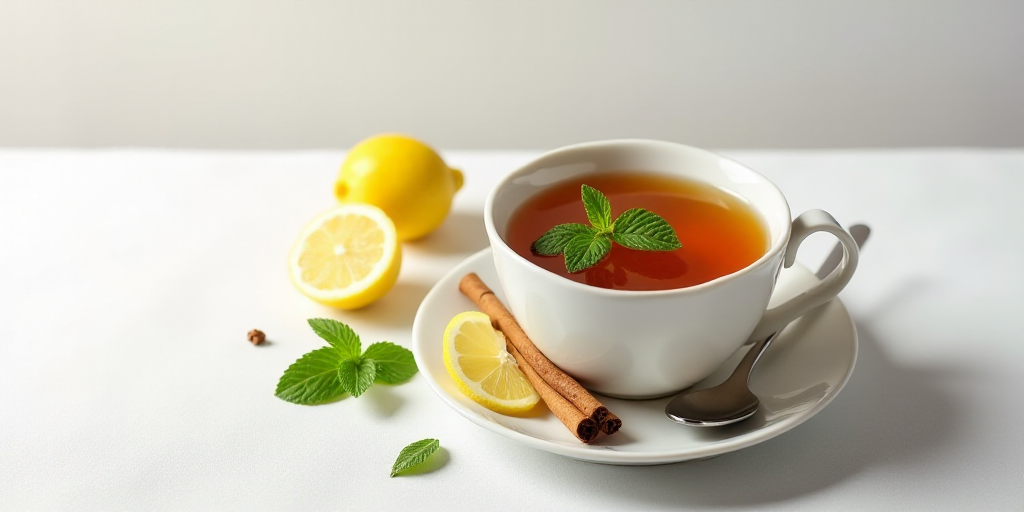The Rise of Slimming Teas in Health and Wellness
In a world where healthy habits and body image are central to conversation, slimming teas have become a constant trend on social media, natural food stores, and supermarkets. They promise “fat burning,” “flat abs,” and even “detoxification.” But beyond the enticing labels, do these teas truly aid in weight loss?
From traditional Chinese medicine to Mexican herbalism, infusions have long been allies of well-being. However, when it comes to shedding pounds, results must extend beyond ritual and be backed by scientific evidence. Here, we analyze the most recommended teas by nutrition experts and the studies that support them.
Green Tea: Most Scientifically Supported
Rich in catechins, especially epigallocatechin gallate (EGCG), green tea has become a nutritionist favorite. Its thermogenic effects help the body burn more calories at rest and stimulate fat oxidation.
A 2009 analysis of 15 studies, published in the International Journal of Obesity by researcher Rik Hursel and his team, found that regular consumption of caffeinated green tea results in a modest but significant reduction in body weight and helps maintain it long-term.
Green tea can be a good complement for those already following a balanced diet and exercising regularly. It’s not a magic solution, but it can certainly help.
Oolong Tea: The Largely Unknown
This semi-fermented tea, popular in China, combines the properties of both green and black teas. According to a study published in the Chinese Journal of Integrative Medicine by Kuo et al. (2001), participants who drank oolong tea twice a day for six weeks experienced significant reductions in body weight and subcutaneous fat.
Oolong tea contains polyphenols that help accelerate metabolism and improve fat burning. Additionally, its milder taste makes it a good option for those who don’t enjoy the bitterness of green tea.
Hibiscus Tea (Jamaica): More Than a Diuretic
In Mexico, jamaica is enjoyed cold and sweet, but its natural, unsweetened version has interesting effects. Its antioxidant and diuretic compounds help reduce fluid retention but also positively impact cholesterol and triglyceride levels.
A controlled clinical trial with a placebo, conducted by researcher H.C. Chang and his team in 2014 and published in Food & Function, demonstrated that hibiscus extract helped reduce body mass, abdominal fat, and body mass index (BMI) in individuals with overweight.
Black Tea: Regulates Intestinal Microbiota
Though less popular than green tea, black tea contains theflavins and theaflavins that also act on metabolism. Researchers from UCLA, led by Susanne M. Henning, published a 2017 study in European Journal of Nutrition showing how black tea can favorably modify intestinal microbiota, promoting bacteria associated with weight loss and reduced abdominal fat.
Intestinal health plays a crucial role in weight control, making this type of infusion ideal for those seeking balanced intestines alongside measurements reduction.
Ginger and Mint Tea: Appetite Suppressant
While their effects are more indirect, ginger and mint help improve digestion and reduce inflammation. A meta-analysis published in Critical Reviews in Food Science and Nutrition by N. Maharlouei et al. in 2019 evaluated ginger’s impact on overweight individuals and concluded that its consumption has light but positive effects on weight reduction, BMI, and blood glucose.
Although these teas don’t burn fat on their own, they can be useful in preventing bloating, controlling food-seeking anxiety, and generating a feeling of fullness.
Detox Teas: Myth or Reality?
Most “detox” teas circulating on social media contain laxative ingredients like senna, which don’t burn fat but cause water and electrolyte loss. Their prolonged use can be dangerous and isn’t supported by institutions like the World Health Organization or the medical community.
Teas and infusions can be allies in a weight loss process if consumed as part of a healthy lifestyle. None work alone or replace a balanced diet. Their primary contribution lies in stimulating metabolism, aiding digestion, reducing inflammation, or supporting satiety.
Choosing the most effective teas—like green, oolong, hibiscus, or even black tea—can make a small but significant difference when combined with good habits.
Key Questions and Answers
- Are slimming teas effective for weight loss? While they can support a healthy lifestyle, no single tea is a magic solution. They work best when combined with balanced nutrition and exercise.
- What are some scientifically supported teas for weight loss? Green tea, oolong tea, hibiscus tea, and black tea have been backed by studies for their potential to aid in weight management.
- What should I know about detox teas? Most detox teas contain laxative ingredients that cause water and electrolyte loss rather than burning fat. Their prolonged use is not recommended.






